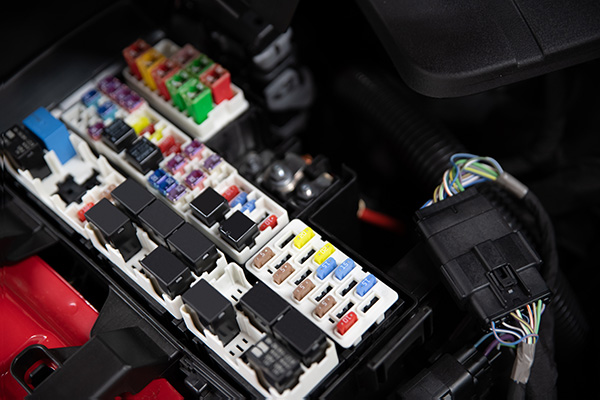
When something electrical stops working in your car, like your power windows, radio, or interior lights, a blown fuse is often the culprit. While the idea of fixing electrical problems might seem intimidating, replacing a blown fuse is actually one of the simplest DIY car maintenance tasks. Understanding how to locate, check, and replace a fuse can save you time and possibly a trip to the shop.
What Does a Fuse Do
A fuse is a small, protective device in your vehicle’s electrical system. Its main job is to protect wiring and components from excessive electrical current. If there’s a surge or short circuit, the fuse "blows" (breaks the circuit) to prevent further damage. While this stops the affected accessory from working, it helps protect more expensive parts of your car.
Signs of a Blown Fuse
The most obvious sign of a blown fuse is when a particular electrical component stops working suddenly. For example, if your radio goes dead, your headlights won’t turn on, or your power windows don’t move, a fuse might be to blame.
Sometimes, multiple systems might fail if they share the same fuse or circuit. Checking the owner’s manual can help you identify which fuse corresponds to the malfunctioning component.
Locating the Fuse Box
Most vehicles have more than one fuse box. The main fuse box is often located under the hood, while another one is usually found inside the cabin, often under the dashboard, near the glove box, or on the side of the dash.
Your vehicle’s owner’s manual will indicate the exact location of each fuse box and provide a diagram that illustrates the function of each fuse.
How to Check a Fuse
Once you locate the fuse box, remove the cover. On the inside of the cover or in the manual, you’ll find a diagram showing which fuse controls each component.
Carefully pull out the suspected fuse using a fuse puller (often included in the fuse box) or a pair of needle-nose pliers. Hold it up to the light and inspect the thin metal strip inside. If the metal strip is broken or burned, the fuse is blown and needs to be replaced.
Choosing the Correct Replacement Fuse
It’s important to replace a blown fuse with one that has the exact same amperage rating. Using a fuse with the wrong rating can cause electrical problems or even damage wiring and other components. The amperage is usually marked on top of the fuse (like 10A, 15A, 20A, etc.).
Before inserting the new fuse, check that the electrical system is turned off to avoid any accidental surges.
Installing the New Fuse
Carefully push the new fuse into the correct slot until it is secure. Once replaced, test the component to make sure it’s working again. If it does, you've successfully fixed the problem. Replace the fuse box cover and make sure it’s sealed properly to protect the fuses from moisture and dirt.
What If the New Fuse Blows Again
If your new fuse blows soon after you replace it, there may be a deeper electrical issue, such as a short circuit or a problem with the connected component. Repeatedly replacing fuses without fixing the root cause can damage your electrical system and create bigger problems.
When this happens, it’s best to have your vehicle inspected by a professional technician who can diagnose and repair the underlying issue safely.
Safety Tips When Replacing Fuses
While replacing a fuse is a simple task, safety should always come first. Always turn off the vehicle and remove the key before opening the fuse box. Avoid touching metal parts of the fuse with your fingers, and never attempt to bypass a fuse or use a substitute item like foil — this can cause severe damage or even fire.
Keep Spare Fuses Handy
It’s a good idea to keep a small assortment of spare fuses in your glove box or emergency kit. That way, you’re prepared if a fuse blows unexpectedly while you’re on the road. Having the right tools and replacements on hand can help you avoid getting stuck or losing access to important electrical systems.
Get Expert Help at Bimmer Motor Specialists in Coppell, TX
If you suspect a bigger issue behind repeated blown fuses or prefer professional help, the team at Bimmer Motor Specialists in Coppell, TX, is here to assist. Our experienced technicians can diagnose and fix electrical problems to ensure your vehicle stays safe and reliable. Schedule an appointment today and drive confidently, knowing your car’s electrical system is in expert hands.